First, a brief reminder to understand how the hair’s biological cycle works, from growth to shedding:
- the anagen phase : is the active growth phase of the hair, it will grow for 2 to 7 years.
- the catagen phase : marks the transition between hair growth and hair loss, and lasts less than three weeks. Hair fiber production decreases and the hair follicle retracts.
- the telogen phase : is the last phase of the hair, the resting phase. It remains attached to the follicle but is completely inactive. After 3 months, it eventually falls out and makes way for the growth of a new hair.
Age, sex, genetic factors, diet, hair care, the environment and seasonal changes are all factors that can influence the growth of your mane.
So if you want to achieve long hair, it’s important to take care of it, from the scalp to the ends. For this, plant and essential oils are invaluable allies.
Read also | A pharmacist’s advice on buying the best supplements for hair loss
1. Castor oil
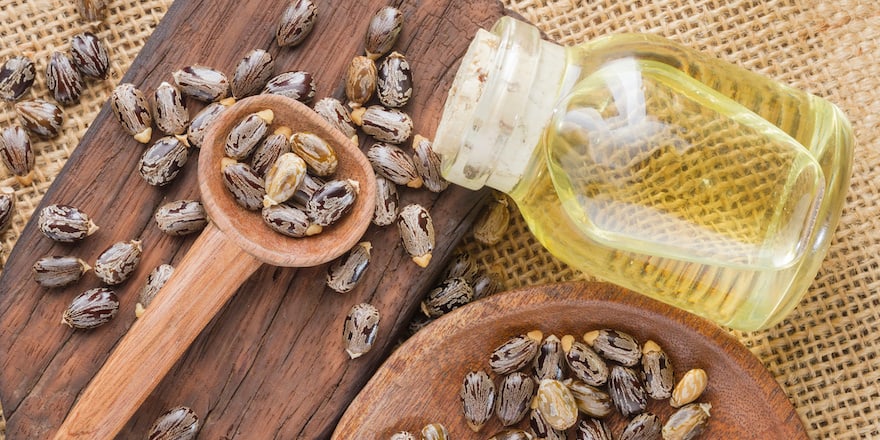
Castor oil is by far the best-known plant oil for achieving long, strong hair. The ricinoleic acid it contains helps maintain a healthy scalp, while vitamin E stimulates blood microcirculation.
This study shows the effect of this acid found in castor oil. Due to its inhibitory properties on prostaglandin D2 synthase, which would block hair growth, ricinoleic acid could be a potentially interesting compound for developing a safe treatment against hair loss.
As a result, all the conditions are in place for good hair growth and to reduce hair loss.
My advice : Be careful, it is very viscous and difficult to rinse out. For more practical use, I recommend mixing it 50% with a more fluid oil, such as argan, coconut, sweet almond, or jojoba oil.
2. Mustard oil
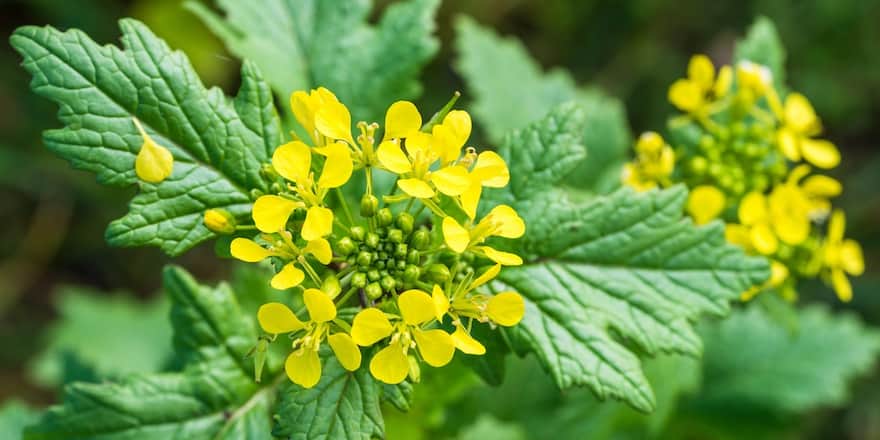
Mustard oil provides essential nutrients to the scalp, including omega-3 and omega-6 fatty acids, vitamins, and minerals.
According to the results reported in this scientific review, the oil easily penetrates the scalp and reaches the hair follicle to improve blood circulation thanks to the compounds it contains. As a result, better circulation leads to improved hair growth.
My advice : Don’t think about using it in your vinaigrettes; rich in erucic acid, this vegetable oil is not edible. Potent, it needs to be diluted with another vegetable oil, such as coconut oil, to avoid irritating sensitive scalps.
3. Avocado oil
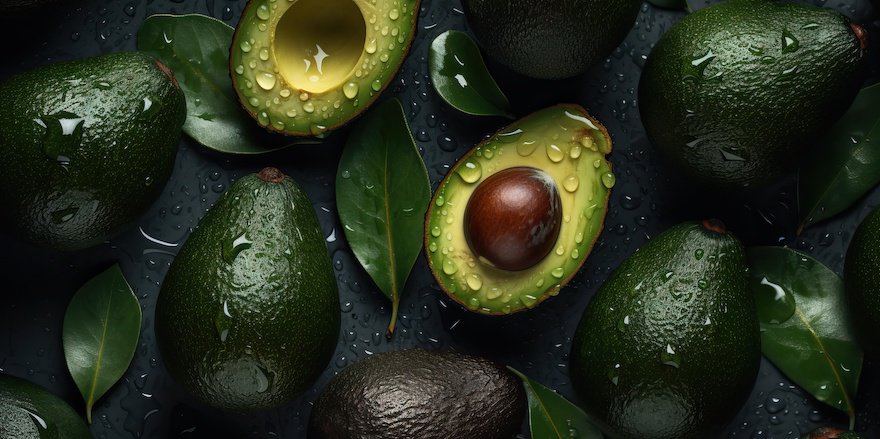
This vegetable oil is very nourishing for hair, thanks to its omega-9 content. It contains essential fatty acids and vitamins and antioxidants (A, D, E), as described in this study.
Thanks to its composition, avocado oil provides a good foundation to promote hair growth by keeping hair healthy.
My advice : I also recommend consuming it orally to benefit from its omega-9s.
4. Arugula oil
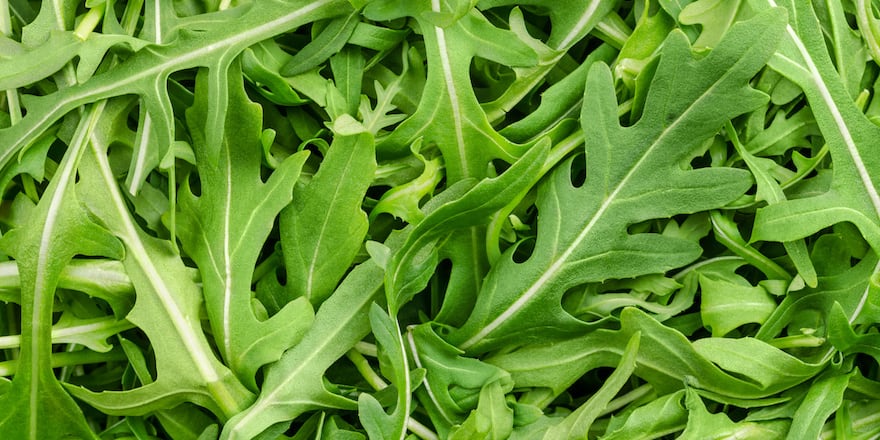
Arugula oil is known to enhance the hair and give it shine. But that’s not all: rich in vitamins (A, B, C, E) and minerals (iron, calcium, magnesium), this plant oil provides nutrients to the scalp and stimulates blood circulation.
It is therefore a good ally to promote healthy hair growth, while limiting hair loss. It is even found in some dietary supplements for hair.
My advice: Apply arugula oil as a treatment before your shampoo to nourish your scalp and stimulate growth.
5. Ylang-ylang essential oil
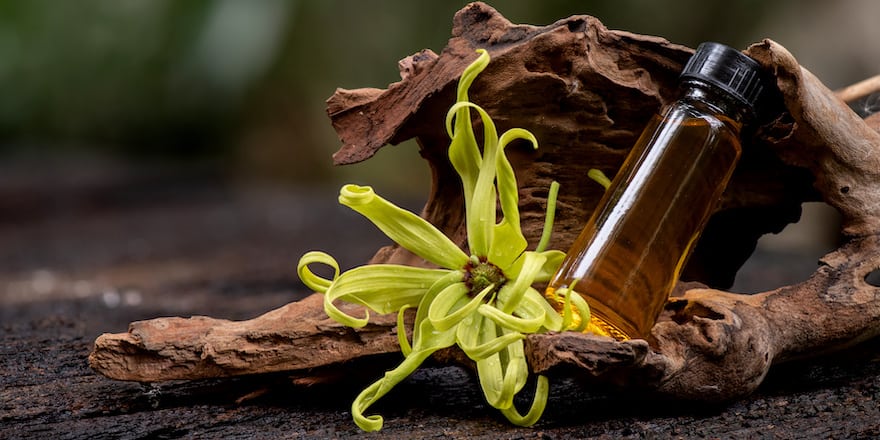
The high content of monoterpenes (linalool), as well as sesquiterpenes (germacrene D), is believed to underlie ylang-ylang’s benefits for hair.
This study has also shown the high antioxidant capacity of ylang-ylang, comparable to trolox, an analog of vitamin E.
Moreover, by potentially acting on stress, ylang-ylang essential oil could therefore help indirectly combat hair loss.
As for its powerful scent, you either love it or hate it. Personally, I’m a fan.
My advice: In a teaspoon, I mix 4 drops of ylang-ylang essential oil with one of the vegetable oils mentioned above.
6. Peppermint essential oil
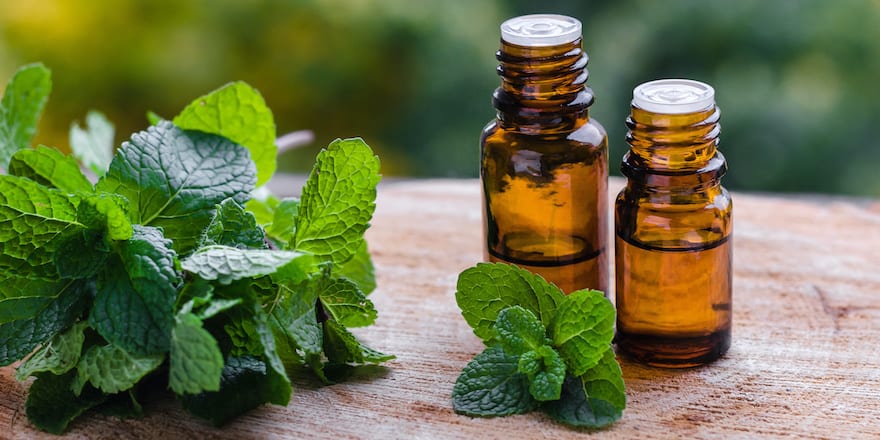
Known for its effects in the digestive sphere, peppermint essential oil could contribute to hair growth by promoting blood microcirculation and toning the scalp.
I notably found this study (admittedly conducted on mice!) which shows an increase in the number of hair follicles and their depth after one month of topical use of this essential oil.
My advice: Be careful when using it on your hair, as peppermint essential oil can be particularly irritating to the eyes.
7. Rosemary essential oil
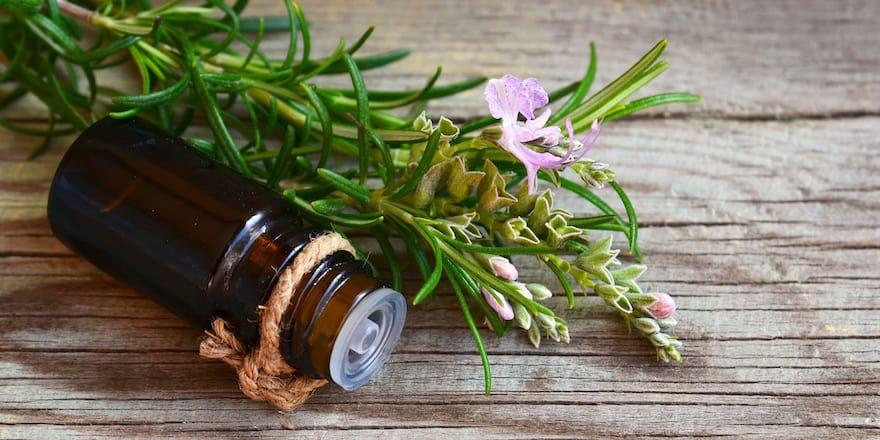
Eucalyptol, camphor, terpenes and phenolic compounds present in rosemary essential oil are believed to confer beneficial properties to hair.
Together, they may improve blood microcirculation, promoting the delivery of nutrients to hair follicles, while protecting them.
Beyond promoting growth, rosemary essential oil has already shown promising results in fighting alopecia. Isn’t that proof that the essential oil has a real effect?
My advice: Do a test once a week, mixing it with another carrier oil before massaging your scalp.
My tips for using oils to stimulate hair growth
These carrier and essential oils are not miracle products. Based on my research, the scientific evidence is too weak to assert these benefits, so I invite you to test them according to your needs and form your own opinion. Don’t forget that diet can also play a role in hair growth.
Here are some tips for using them effectively:
- Do vegetable oil hair baths one hour before your shampoo. Be careful, you don’t need to empty half the bottle; it won’t help. For a stronger effect, add a few drops of essential oils.
- Also add a few drops of essential oils to your hair serums, your shampoos, or even your post-wash masks.
- Warm a few drops of vegetable oil in your hands before performing a scalp massage. It’s a tried-and-true tip for promoting blood circulation.
Also read | The 3 best dietary supplements for hair reviewed by a pharmacist



